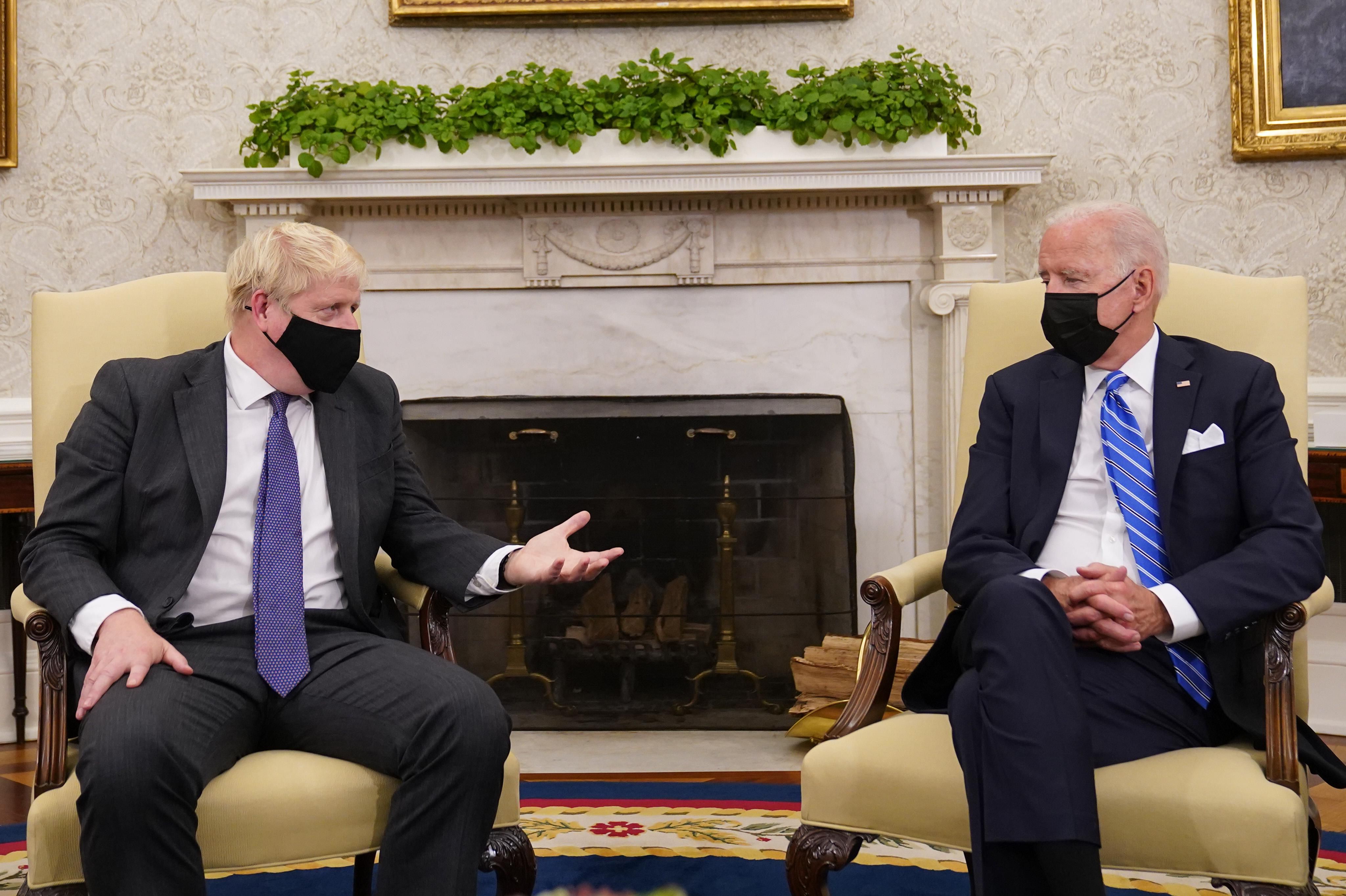What We’re Watching: UK wants to be North American, Sudanese foil coup, Haitian refugee crisis grows
Can the UK join a North American trade deal? The acronym for the US-Mexico-Canada Agreement was never all that elegant, but now London wants to throw two more letters into that soup. That's right, the UK wants to join USMCA, the trade pact brokered by the Trump administration in 2020 as an update to the 1990s-era NAFTA agreement. London had hoped that Brexit would free it up to ink a bilateral free trade deal with the US, but as those talks have stalled in recent months, PM Boris Johnson now wants to plug his country into the broader three-party deal. The fact that the UK already has deals with Canada and Mexico should help, in principle. But it would doubtless be a complex negotiation. And there's at least one huge hurdle: US officials are reportedly unaware of any mechanism at all for bringing aboard additional countries.
Haitian migrant crisis at US border: In recent days more than 15,000 Haitians — most of whom come from South America, where they've lived since fleeing post-quake Haiti in 2010 — have journeyed to the US southern border in hopes of gaining asylum. No such luck. The Biden administration is deporting them as fast as it can, and US border patrol officers have even sent agents on horseback to capture them. Earlier this week, a horrific image of a border patrol horseman using what looks like a whip against a Haitian refugee went viral. While the White House has given protected status to Haitians already in the US, that does not apply to new arrivals. And although Biden is seeking to raise the cap of refugees accepted by the US overall, he has left in place the Trump administration's Title 42 provision, which permits the US to deport asylum seekers, without a hearing, on public health grounds. Human rights groups say Title 42 is discriminatory, but Biden may be keeping an eye on the polls here: 80 percent of Americans think of immigration as a "serious problem," and 55 percent are against Biden undoing some of the most stringent Trump-era immigration policies.
Sudan thwarts coup: Sudan's civilian PM Abdalla Hamdok says the military has foiled a coup attempt by "forces of darkness" linked to Omar al-Bashir, the deposed former dictator. Details are sketchy, but at least 21 military officers and civilians have been arrested for their role in the failed coup, considered the most serious of multiple previous attempts. The possibility of a military takeover by al-Bashir loyalists has haunted the country since the longtime autocrat — now pending trial in The Hague — was ousted in 2019, giving way to a shaky democratic transition. Although the military has mostly stayed loyal to the the transitional civilian-military government that has run the country for more than two years, many disgruntled officers remain in their jobs, and could become a bigger problem in November, when power is supposed to rotate from the military side of the transitional government to the civilian side headed by Hamdok.
